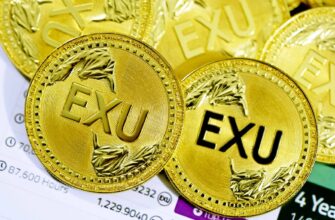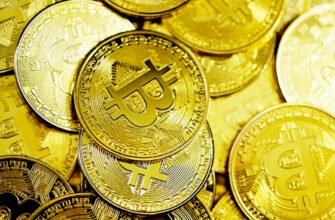- Introduction: Toncoin and Thailand’s Financial Evolution
- What is Toncoin? The Foundation of The Open Network
- Thailand Banks and Cryptocurrency: Regulatory Realities
- Toncoin Price Analysis: Trends and Influencing Factors
- How to Buy and Sell Toncoin via Thailand Banks
- Risks and Considerations for Thai Investors
- Future Outlook: Toncoin and Thai Banking Synergy
- Toncoin Price for Thailand Banks: FAQ
Introduction: Toncoin and Thailand’s Financial Evolution
As Thailand’s banking sector increasingly explores digital assets, Toncoin (TON) has emerged as a cryptocurrency of significant interest. Originally developed by Telegram, Toncoin powers The Open Network—a high-speed blockchain promising low-cost transactions and scalability. For Thai investors and financial institutions, understanding Toncoin’s price dynamics within the local regulatory framework is crucial. This guide examines Toncoin’s current market position, its relationship with Thailand’s banks, and practical insights for navigating this evolving landscape.
What is Toncoin? The Foundation of The Open Network
Toncoin (TON) is the native cryptocurrency of The Open Network blockchain, designed for rapid, low-fee transactions. Unlike traditional banking systems, TON processes millions of transactions per second, making it ideal for micropayments and decentralized applications. Key features include:
- Proof-of-Stake Consensus: Energy-efficient validation securing the network.
- Ultra-Fast Transactions: Near-instant settlement times.
- Scalability: Handles mass adoption without congestion.
- Integration Potential: Supports smart contracts and dApps for financial services.
Thailand Banks and Cryptocurrency: Regulatory Realities
Thailand’s financial regulators, including the Bank of Thailand (BOT) and Securities and Exchange Commission (SEC), have cautiously embraced digital assets. While banks don’t directly trade Toncoin, they facilitate crypto transactions through licensed exchanges. Notable developments include:
- Banks like Siam Commercial Bank (SCB) partner with exchanges (e.g., Bitkub) for fiat on/off ramps.
- SEC Thailand classifies cryptocurrencies as digital assets, requiring exchanges to comply with KYC/AML rules.
- Strict advertising guidelines prevent banks from promoting crypto investments directly.
This framework means Thai investors rely on exchanges—not banks—for Toncoin purchases, using bank transfers for funding.
Toncoin Price Analysis: Trends and Influencing Factors
As of late 2023, Toncoin trades around $1.50–$2.50, influenced by both global crypto trends and local Thai demand. Key price drivers include:
- Market Sentiment: Bitcoin’s performance often sets the tone for altcoins like TON.
- Adoption Milestones: Partnerships with Thai fintech firms or payment gateways boost utility.
- Regulatory News: SEC Thailand rulings impact investor confidence.
- Network Upgrades: Technical enhancements (e.g., TON Storage or DNS) increase token demand.
Thai investors should monitor global exchanges like Bybit or OKX, plus local platforms such as Bitkub, for real-time pricing.
How to Buy and Sell Toncoin via Thailand Banks
While banks don’t sell Toncoin directly, they enable transactions through SEC-licensed exchanges. Follow these steps:
- Choose a Regulated Exchange: Sign up with Bitkub, Satang Pro, or Zipmex.
- Link Your Bank Account: Connect a Thai bank account (e.g., KBank, SCB) for THB deposits.
- Deposit Funds: Transfer THB via mobile banking or ATM.
- Purchase TON: Buy Toncoin at market or limit prices.
- Secure Storage: Withdraw to a non-custodial wallet like Tonkeeper for safety.
Note: Banks may flag large transfers—inform them beforehand to avoid blocks.
Risks and Considerations for Thai Investors
Toncoin investment carries inherent risks. Thai users should evaluate:
- Price Volatility: TON can swing 10–20% daily—only invest disposable income.
- Regulatory Shifts: Thailand’s SEC may impose new restrictions affecting liquidity.
- Security Threats: Use hardware wallets and enable 2FA on exchanges.
- Tax Implications: Crypto profits face 15% capital gains tax in Thailand.
Future Outlook: Toncoin and Thai Banking Synergy
Thailand’s push toward a digital economy could see deeper Toncoin integration. Potential developments include:
- Banks leveraging TON blockchain for cross-border remittances to cut costs.
- Tokenized assets (e.g., real estate) using TON smart contracts.
- Central Bank Digital Currency (CBDC) pilots interacting with decentralized networks.
As regulatory clarity improves, Toncoin’s utility in Thailand’s financial ecosystem may expand significantly.
Toncoin Price for Thailand Banks: FAQ
1. Can I buy Toncoin directly from Thai banks?
No. Banks facilitate THB transfers to licensed exchanges (e.g., Bitkub), where you purchase TON.
2. Is Toncoin legal in Thailand?
Yes. The SEC regulates it as a digital asset, but always verify exchange licenses.
3. What affects Toncoin’s price the most?
Global crypto trends, adoption news, network upgrades, and Thai regulatory announcements.
4. How do I store Toncoin safely?
Use non-custodial wallets like TonWallet or hardware devices (Ledger). Avoid keeping large sums on exchanges.
5. Are there taxes on Toncoin profits?
Yes. Thailand imposes 15% capital gains tax on crypto earnings—maintain transaction records.








